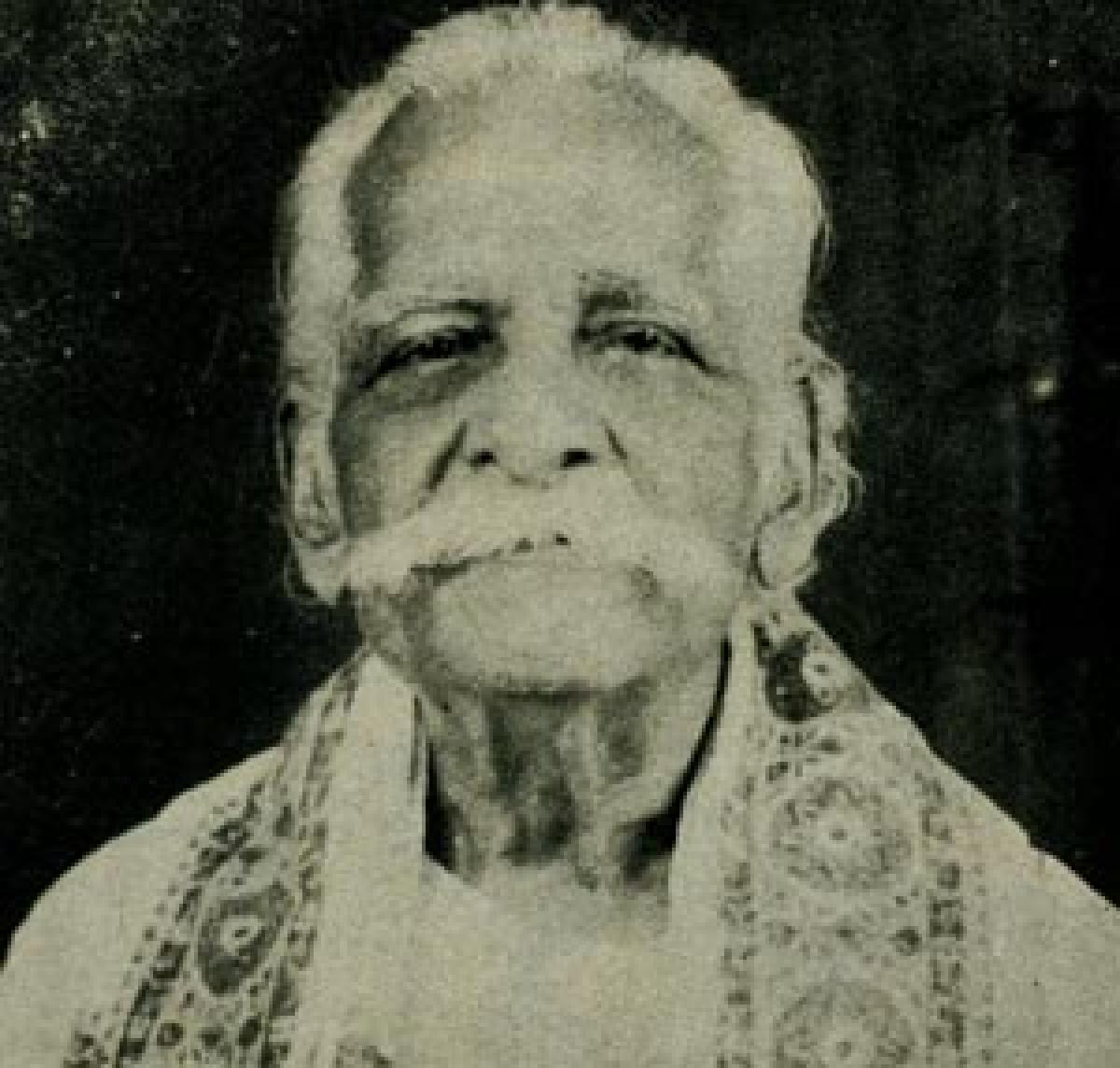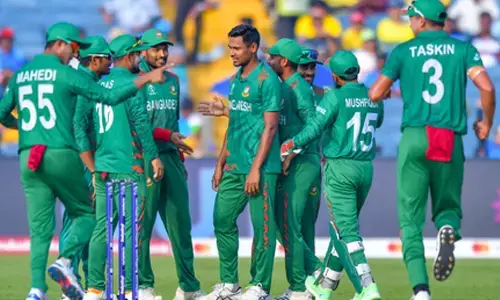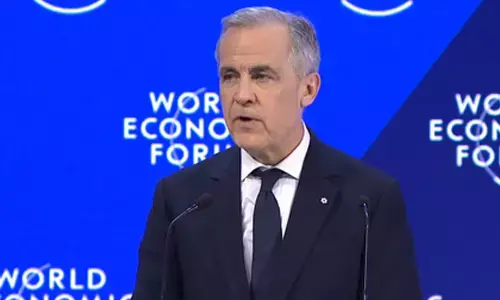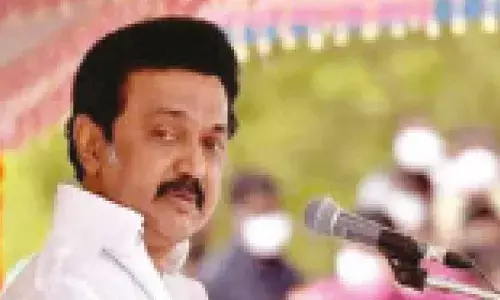Surviving the test of time

Hailed as the Andhra Milton, Chilakmarthy Lakshminarasimha Murthy, also blind, rendered a poem to mark the conclusion of the first Andhra Pradesh Library Conference on 10th April, 1914.
Hailed as the Andhra Milton, Chilakmarthy Lakshminarasimha Murthy, also blind, rendered a poem to mark the conclusion of the first Andhra Pradesh Library Conference on 10th April, 1914.
It’s translation runs like this-As the water is the comprehensive property of one and all; the Jnanam (knowledge) shall be possessed by one and all. Just as the water is consumable by one and all, Jnanam shall be the property of one and all. Just as the rays of the sun and the moon are beneficial to one and all, Jnanam shall benefit the entire humanity.
The poem became instantly popular and is regarded as the Grandhalaya Vedam. What is significant about the Vedam is that it was sung 36 years before "We the people of India" was adopted by the Constitution of India in 1950, assuring among other things: Social Justice.
With the spirit of Vedam, the institution of libraries was a movement in the Telugu Speaking regions of Madras and Hyderabad States; not an arm of the government. Ahead of times, Andhra Pradesh Library Association (APLA), as torch-bearer consolidated the movement, which made its mark in the last quarter of the 19th Century.
The Vedam is still relevant. All those who served the APLA, putting their heart and soul and strained every nerve to achieve the status envisioned by Chilakamarthy, included Ayyanki Venkataramanahia, Mocharla Ramachandara Rao, Deshoddharaka Kasinathuni Nageswar Rao Pantulu, Duggirala Gopala Gopalakrishnaiah, Gadicharla Harisarvothama Rao and Paturi Nagabhushanam.
It is not an exaggeration that the triumvirate of the movement, Ayyanki, Gadicharla and Paturi, as they were affectionately called, were, respectively revered as Brahma, Vishnu and Maheswara of the Library Movement in Andhra Pradesh.
The Grand Old Man of the Movement and its first secretary Ayyanki Venkata Ramanaiah was invited by the Princely states of Hyderabad, Baroda and Mysore to render advice. Gadicharla, giving up his political career, was president of APLA for the longest period-1936 to q960. He was elected the Vice-President of the National Library at Calcutta.
Pathuri one of the successor Secretaries introduced many novel ideas like Boat and mobile libraries. Libraries were located in thatched sheds also. Dr A P J Kalam, on seeing the brochure, spontaneously reacted, “Wow! A boat library” Paturi’s daughter, Dr Ravi Sarada, the present Secretary has been piloting the APLA since 1994.
APLA had conducted about 40 conferences at various places in Telugu speaking regions, including in the remote God-forsaken places. It has to be noticed that these activities were carried on in Colonial India when civic amenities, transportation and communication were primitive. They were presided over by legends like Raja of Panagal, Andhra Kesari and Anananthasayanam Ayyangar.
Saraswath Nikethanam Vetapalem, Prakasam Dist., founded in 1918, by Late V V Sresthy, still remains a private library maintained by the founder’s family; a one-of-its kind perhaps in the country!! The foundation stone for the building was laid by Mahatma Gandhi in 1929.
"India lives in its innumerable villages and not in few towns and fewer cities" is Mahatma’s famous statement. APLA's contribution in fulfilling this preaching was enormous. Workshops were conducted to educate farmers on their occupation. Particular mention must be made of the champion of farmers, Rythu Bdhavaudu Acharya N G Ranga, who was enthusiastic participant.
In accordance with the A P Public Libraries Act, libraries are under Zilla Grandhalaya Samsthas while the governing body in the State is A P Grandhalaya Parishat. But they are not being reconstituted regularly. Loka Ayukta's whipping in 1998, upon a petition filed by me had salutary effect in payment of cess by the local bodies; but that turned lethargic again.
In the absence of the Grandhalaya Parishad, even the funds available in the Zilla Grandhayala Samsthas, cannot be drawn and books are not purchased for want of budgetary sanctions. There is a need and demand for a Second Swadeshi Movement. As per the provisions of the 73rd and 74th Amendments to the Constitution, Gram Panchayats and Nagarapalikas are obliged to set up libraries.
It is pertinent to note that these Amendments are intended to devolve powers to the local self-governments. This is an extension of the Directive Principles of the State Policy in the Constitution. They are honoured in breach. I wish and appeal that all the concerned to strive to translate the spirit of the Vedam into action. Let me assure you, it rewarding and educational.















